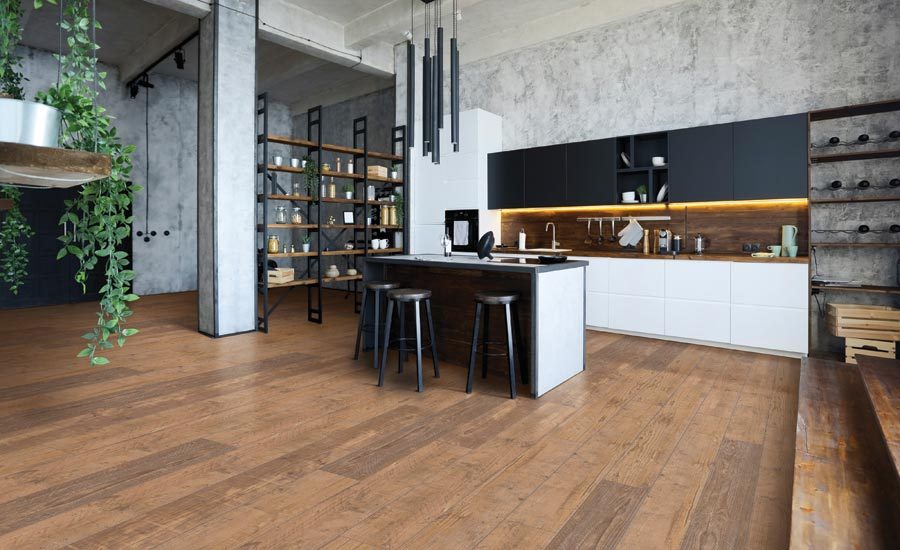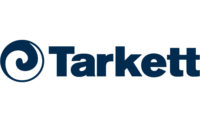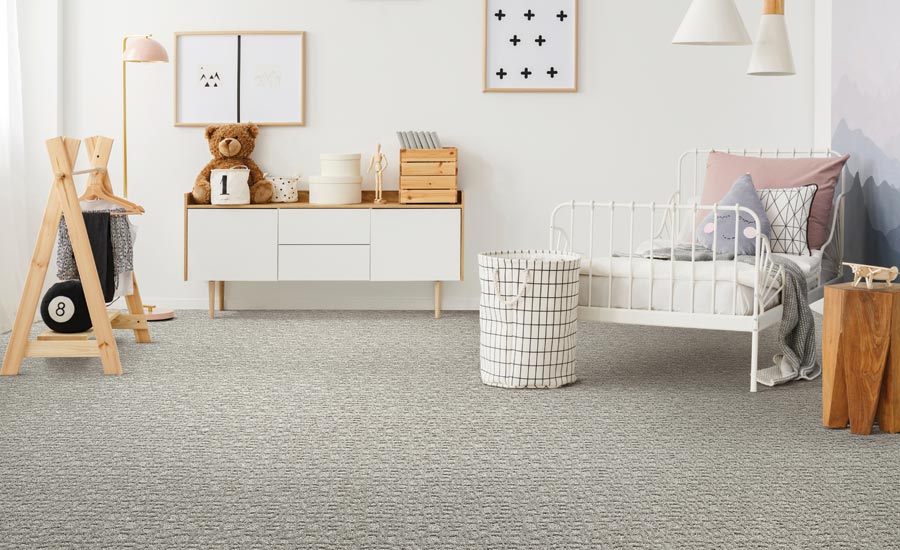Breathing Easy: Flooring Innovations for Healthier Homes

Mohawk’s Air.o is the first soft flooring product to be made entirely of one ingredient, PET. A hypoallergenic carpet, Air.o has 0-percent moisture absorption properties, meaning it is unable to hold harmful hold mold, mildew and allergen-promoting moisture in its face fiber, backing and cushion.

The Unleashed collection from Anderson Tuftex offers Cradle to Cradle Certified engineered hardwood and broadloom carpet options that allow end-users’ personal style to shine through without worrying about pet stains or fur.

Phenix has removed perfluorinated chemicals (PFC) from its residential carpet backings, further giving consumers piece of mind that the flooring they’re putting in the homes is safe and free of foreign chemicals or raw materials that could be potentially harmful.

Shaw’s Floorté Classic Series is FloorScore Certified, which is an indoor air quality (IAQ) certification standard for hard surface flooring material.

For its hard surface products, The Dixie Group is sourcing from factories that aren’t cutting corners in order to offer consumers cleaner, more sustainable solutions that they can trust.





According to the National Center of Healthy Housing, a healthy home is housing that is designed, constructed and maintained in a manner that is conducive to good occupant health. From air quality and sound control to comfort and wellness, experts say flooring can impact many of the attributes of a healthy home. Responding to end users’ heightened awareness of the connection between the spaces they occupy and their wellbeing—and to the booming international wellness real estate market, which the Global Wellness Institute says is now a $134 billion industry, expected to reach $180 billion in 2022—flooring manufacturers are rolling out cleaner products for healthier homes and living.
“Today, people spend, on average, 90 percent of their time indoors with the majority of that spent at home,” says Troy Virgo, director of sustainability, Shaw Industries. “So it’s no wonder people are increasingly focused on how indoor spaces can impact their wellness, whether through noise levels, the moods evoked through design aesthetics and choices in materials, or just the peace of mind that a clean space can evoke.”
Virgo says there are often life moments and choices that trigger a closer examination of how we and our family members interact with the elements in our home, including having a baby for the first time, owning a pet, or the onset of health concerns. Whatever the reason for wanting a healthier home, Virgo suggests taking into consideration flooring that promotes healthy indoor air quality and material health, resists moisture and controls acoustics when designing a healthy home.
Shaw Industries
Shaw’s consumer service lines regularly receive calls from homeowners making purchasing decisions, asking about the ingredients in flooring products, how water resistant products are, how easy they are to clean and maintain, and what third-party certifications they have, says Virgo. The company has responded with a focus on the intentional design of products optimized for healthy home attributes.
“At Shaw, we fundamentally believe that everyone should have access to sustainable products regardless of price point,” said Virgo. “We’re proud that almost 90 percent of the products we manufacture are Cradle to Cradle Certified.” The Cradle to Cradle Certified Product Standard evaluates the material health of a product’s ingredients down to 100 parts per million.
Building upon Shaw’s Repel water-resistance technology, new for 2019, Repel Hardwood, which is Cradle to Cradle Certified Silver, features a protective barrier on top of the plank that keeps spills and liquids on the floor’s surface, minimizing the chance for any moisture to seep into the plank.
Also Cradle to Cradle Certified, the Unleashed collection from Anderson Tuftex, a division of Shaw, offers both engineered hardwood and broadloom carpet options that allow end-users’ personal style to shine through without worrying about pet stains or hair. The soft surface products within the Unleashed collection are made with Stainmaster PetProtect carpet, with built-in stain protection and pet hair resistance to make clean up quick and easy.
Shaw offers a wide variety of waterproof and water-resistant flooring solutions, giving homeowners one less thing to worry about. Like its LifeGuard Spill-proof Carpet Backing that answers the need for a worry-free carpet experience. The patent-pending thermoplastic construction keeps 100 percent of spills and pet messes contained. With LifeGuard, consumers no longer have to worry that an accident will permeate the carpet or pad to the subfloor, where it is unreachable and can result in lingering, odor-causing damage.
On the hard surface side, Shaw’s Floorté Classic Series combines character with genuine waterproof hardwood flooring that is designed to withstand the activity of life. Floorté is FloorScore Certified, which is an indoor air quality (IAQ) certification standard for hard surface flooring material.
Also certified by Greenguard Gold Certified for indoor air quality is the COREtec Plus HD Collection. Another division of Shaw, USFloors’ COREtec Plush HD offers a stunning appearance and is backed by patented construction that features an innovative extruded core that contains recycled wood and bamboo dust.
Mohawk
With Mohawk’s unified soft flooring product, Air.o, the manufacturer has virtually eliminated volatile organic compounds (VOCs) from the carpet by eliminating the use of latex in the construction. Turning heads in the industry since its official unveiling in 2017 at The International Surface Event, Air.o is the first soft flooring product to be made entirely of one ingredient, high quality PET.
Mohawk’s extensive research and development in all aspects of the construction of its soft surface products has led to the introduction of innovative, healthy and sustainable products like Air.o. The only hypoallergenic, latex and VOC-free unified soft flooring system in the market, Air.o is made with Mohawk’s Continuum Process, which the manufacturer says promises a cleaner product, cleaner process and cleaner planet.
“Everything from the soft face fiber, our primary backing and the innovative PET adhesive that holds the high quality attached cushion, is all made from the highest grade polymer from recycled plastic bottles,” said Eric Demaree Jr., Mohawk’s senior director of product management. Just last year, Mohawk recycled 6.6 billion plastic bottles.
This unique makeup, in addition to Air.o’s 0-percent moisture absorption properties—meaning the inability to hold mold, mildew and allergen-promoting moisture in its face fiber, backing and cushion—are what gives the carpet some of its hypoallergenic attributes. “Picture a bottled sports drink or a bottle of cola,” says Demaree. “You’ll notice that substance will never leak through the plastic bottle and the bottle remains clear. The bottle will never stain and it will never leak because the bottle does not absorb the liquid. That’s what it means to be totally 0-percent moisture absorption”
Additionally, Mohawk’s independent testing has shown that Air.o has 50 percent more airflow than traditional carpet, allowing for easier removal of things like dust, particulates, pet dander with every pass of the vacuum. “We designed, constructed and maintained this product in a manner that’s conducive to good occupant health,” says Demaree.
The Dixie Group
Known for fine quality and styling that provide beauty and comfort in the home, The Dixie Group’s (TDG) brands of high-end residential offerings have expanded from soft surface with the launch of a hard surface segment in 2017. Since inception, the group has made it a priority to ensure that the hard surface products it brings to market are not just appealing to the eye, but a cleaner, more sustainable solution that end users can trust.
“We’re trying to cover all of our bases so that we know what we get, so that how we advertise and market our product is what we say it is.”
– Jamann Stepp
“What we are doing continuously is vetting suppliers and trade partners to make sure they are meeting stands; are they FloorScore certified? Are they Greenguard Gold certified? Do they have all the applicable tools in place to reduce VOCs and to not put certain chemicals in the products?” says Jamann Stepp, vice president of TDG’s hard surfaces. “We are sourcing from those factories that we feel offer those products and don’t cut corners and are not putting something into the product that make it inferior or make it harmful to the end user.”
Covering all of its bases, TDG employs third-party services to further inspect its hard surface products for everything from scratch resistance and profile to harmful chemicals and agents, prior to shipment to the U.S. “We’re trying to cover all of our bases so that we know what we get, so that how we advertise and market our product is what we say it is,” says Stepp.”
On the installation side, all of TDG’s hard surface products are currently offered in a click floating floor, forgoing the need for potentially harmful adhesives and glues. “I know on the adhesive side — whether it be Advanced Adhesives, Taylor, MAPEI, the list goes on and on — I know that they’ve come a long way with reducing their VOC emissions, but the cool thing for most of Dixie Home and the Dixie Group and Masland is that everything we are selling is a floating floor,” Stepp said.
Phenix Flooring
Giving consumers peace of mind that the flooring they’re putting in their homes is safe and free of foreign chemicals or raw materials that could be potentially harmful, Phenix utilizes Microban technology in its Cleaner Home Collection of carpet.
“Microban is a well-known overall brand name across all sorts of different consumer goods for being an antimicrobial technology,” said Jason Surratt, senior vice president of product and design.
Through this exclusive partnership, Phenix’s Cleaner Home product line has an inherently built in antimicrobial technology, specifically designed to prevent the growth of stain and odor causing bacteria, mold and mildew.
“By helping to mitigate the growth of those bacteria and odors, [Cleaner Home] helps to promote an asthma and allergy-friendly story by reducing those airborne allergies,” said Surratt.
Phenix has also been proactive in the removal of perfluorinated chemicals (PFC) from its residential carpet backings. According to the Environmental Protection Agency, PFCs are synthetic chemicals that are in many consumer products like carpet, leather and waterproof clothing, due to their water-repelling and oil-repelling properties. However, due in part to their chemical properties, some PFCs can remain in the environment and can take several years to be cleared from the body, and studies have shown that levels of certain PFCs can lead to increased cholesterol and changes to the immune system, among other health concerns. In fact, in 2017, the California Office of Environmental Health Hazard Assessment (OEHHA) announced that it would be adding two PFCs to the Proposition 65 list of chemicals known to cause reproductive toxicity.
For more of the latest in residential flooring, click here!
“Any type of new report that says there’s something potentially harmful or that there’s a potential concern, we are going to look at what other type of alternatives may be out there that we can utilize,” said Surratt. “PFCs have become a big one. It’s been a trending topic and I believe California pushed out some new laws, so all of the big box retailers at the end of the year were asking if our products were PFC-free and fortunately we were able to say ‘yes’, all of our residential carpet is PFC-free, low-PFC.”
Looking for a reprint of this article?
From high-res PDFs to custom plaques, order your copy today!












